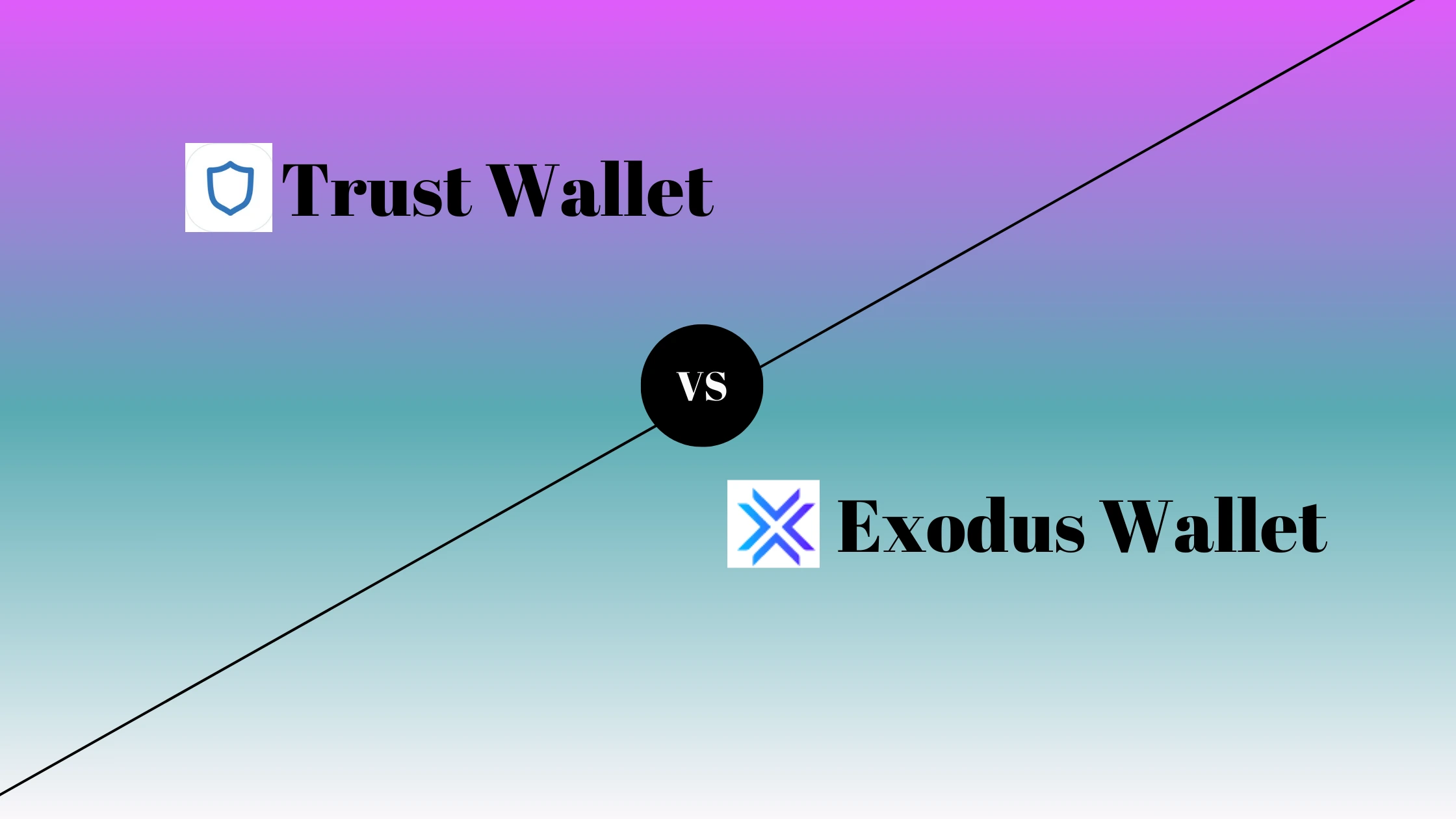Trust Wallet vs Exodus Wallet
If you’re in a predicament about choosing between Trust Wallet and Exodus Wallet for your cryptocurrency needs, this article is the one for you. Here is a thorough comparison of these two non-custodial wallets, taking into account factors such as user experience, supported platforms, the variety of cryptocurrencies, and more. This information will help you decide which wallet aligns best with your digital security and accessibility requirements. Let’s explore the strengths and weaknesses of Trust Wallet and Exodus Wallet to help you make an informed choice.
| Aspect | Exodus Wallet | Trust Wallet |
| Overview | Founded: 2015 | Founded: 2017 |
| Headquarters: San Francisco | Headquarters: Mountain View | |
| Fundraising: $60 million | Fundraising: Acquired by Binance for $10 million | |
| Number of Employees: Over 300 | Number of Employees: Over 220 | |
| Number of Users: Over 1 million | Number of Users: Over 60 million | |
| Wallet Type: Software | Wallet Type: Software | |
| Price: Free (no hardware option) | Price: Free (no hardware option) | |
| Supported Cryptocurrencies: Over 10,000 | Supported Cryptocurrencies: Over 1 million | |
| User Rating: 4.6 (Android App) | User Rating: 4.8 (Android App) |
While both Exodus and Trust Wallet are prominent players in the cryptocurrency wallet space, they have distinct characteristics and strengths.

User Experience
Both Exodus and Trust Wallet are praised for their user-friendly interfaces. Exodus offers a sleek and modern user experience, complete with features like portfolio tracking and in-app trading. Trust Wallet, on the other hand, boasts a clean and intuitive interface.
Crucially, both wallets are non-custodial, meaning you have complete control over your funds. They are supported on popular browsers like Chrome, Brave, Firefox, and Edge. Ultimately, your choice between these two wallets will likely depend on the specific features that matter most to you.
Features
Exodus and Trust Wallet provide secure methods for storing and managing your crypto assets. Here’s a breakdown of their notable features:
- Exodus supports in-app swaps through platforms like OpenOcean, Kyber Network, and Rango, with a 2%-5% fee. It is partly open source, supports NFTs on Ethereum and Solana, and offers staking for seven cryptocurrencies, including ATOM, XTZ, GAS, and SOL. Additionally, Exodus integrates with Compound Finance and MoonPay.
- Trust Wallet also allows in-app swaps, supported by Thorchain, Kyber Network, and 1inch, albeit with a high 1% fee. Trust Wallet is entirely open source, supports NFTs for Ethereum, Solana, and Polygon, and offers staking for 12 cryptocurrencies, including BNB, ATOM, LUNA, and OSMO. Furthermore, Trust Wallet integrates with Binance Pay and Coinbase Pay.
Cryptocurrency Support
In the realm of cryptocurrency support, both Exodus and Trust Wallet are highly competitive:
- Exodus supports a substantial 290 cryptocurrencies and 15 blockchains, including popular options like Bitcoin, Ethereum, BSC, Avalanche, Fantom, and Solana. It also provides support for 7 stablecoins and offers hardware wallet integration with Trezor.
- Trust Wallet, on the other hand, is a giant with support for over 10,000 cryptocurrencies and 65 blockchains, encompassing Bitcoin, Ethereum, Solana, and Cosmos. It also supports 12 stablecoins and offers hardware wallet integration with Ledger.
Security Check
Security is paramount in the world of cryptocurrency, and both Exodus and Trust Wallet excel in this aspect:
- Both wallets are non-custodial, meaning you control your private keys and funds, and neither demands personal information for sign-up.
- Exodus is partially open source and regularly undergoes audits by Least Authority. It runs a bug bounty program with rewards of up to $50,000.
- Trust Wallet is fully open source and undergoes audits by Stateful. It offers bug bounties with rewards of up to $100,000. Trust Wallet is also actively implementing measures to block phishing sites.
In summary, both Exodus and Trust Wallet are secure and user-friendly options for managing your cryptocurrencies, and the choice between them largely depends on your specific needs and preferences. Read More Articles.







